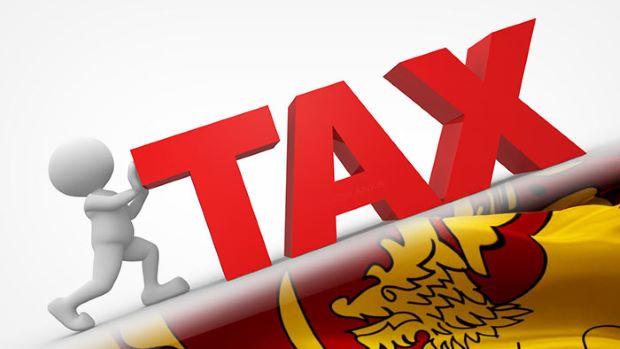COLOMBO — Sri Lanka plans to bring 500,000 out of some one million “tax evaders” who can pay income tax into the tax net in a bid to increase direct taxation to 40%, State Minister of Finance Ranjith Siyambalapitiya said.
Speaking at a media briefing on Monday (8), the state minister said the government intends to shift the balance in direct versus indirect tax, which currently stands at 30 and 40% respectively.
“This adjustment aligns with the conditions of developed countries and promotes social justice. In a population of one million capable taxpayers, only 500,000 individuals are currently fulfilling this obligation. Identifying tax evaders and bringing them into the tax net is crucial to reducing indirect taxes,” he said.
In developed nations, he said, being a taxpayer is acknowledged as a sign of a robust citizen actively contributing to the nation’s stability, expressing confidence that Sri Lankans will undergo a “positive shift in attitude, fostering development within the nation”.
The Tax Identification Number (TIN) number is also to be implemented from February 1, he said.
“At the end of 2019, the number of tax files stood at 1,705,233, which decreased to 437,547 by the end of 2022. However, with the new policies of our government, we have successfully increased the number of tax files to 1,002,029 by December 31, 2023. Nevertheless, there is a need for further increase in that figure,” he said.
By the end of 2023, state revenue which stood at 8% as a percentage of the Gross Domestic Product (GDP) has increased to 10%. The government aims to further elevate it to 12% by the end of 2024 and set a target of reaching 15% by the year 2025 to establish a country with a stable economy, the state minister said.
According to Siyambalapitiya, the government also anticipates the recent value-added tax (VAT) revision will contribute an additional 2.07% to the state revenue as a percentage of the general gross domestic product, amounting to 645 billion rupees. The Economic Research Division of the Central Bank has analyzed that the increase in tax rates may lead to a 2.5% rise in inflation. However, with the reduction in the electricity bill, inflation can be brought back to 5% within two or three months, he said citing the central bank.
The state minister further said that preparations are underway to implement the TIN system starting from February 1. Registration issues are currently being encountered, he said, primarily because this is a new experience for the people.
“Efforts are being made to address these challenges at the Divisional Secretariat level, to resolve them through an online system,” he said.
-economynext.com



Comments are closed, but trackbacks and pingbacks are open.